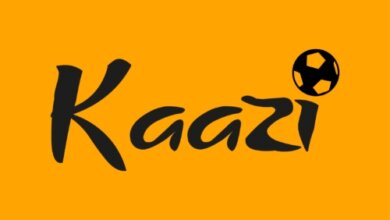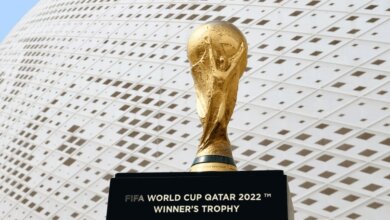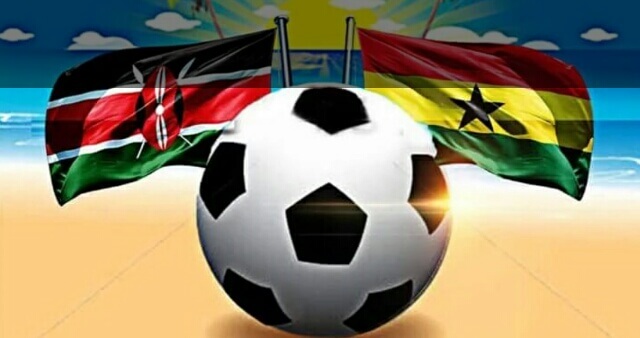The Black Stars and how far they’ve brought Ghana Football
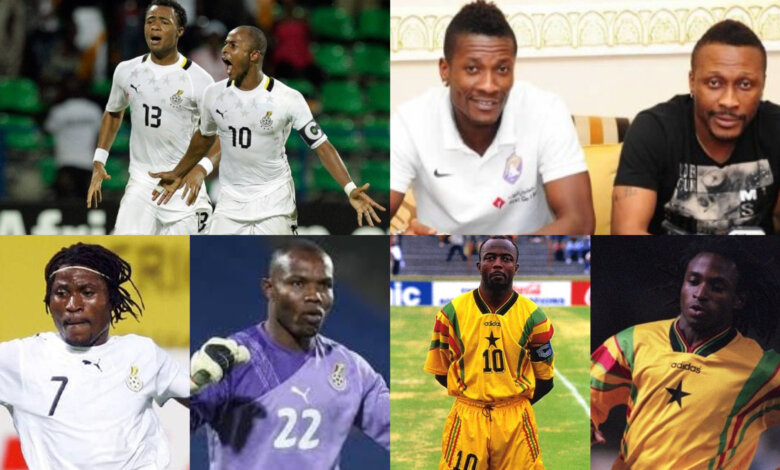
At the mention of the name ‘Black Stars’, the world of sport and business can unequivocally direct their attention to Ghana. The name attracted more popularity when the Black Stars reached the quarter-final of the 2010 FIFA world cup in South Africa. As the surviving African team in the cup at the time, Africa and the world at large garnered a peculiar interest in the outcome of the tournament.
As it would seem that the Black Stars will secure a win to break the semi-final jinx for all African teams, Luis Suarez’s acclaimed “Hand of God” foul would rewrite history, even after a red card and a penalty kick in favor of Ghana.
“When Ghana missed the penalty, Sebastian Eguren gave me a hug,” – Suarez (Ghana vs Uruguay, World Cup, 2010)
Thus, the high hopes became short-lived.
Black Stars History
The Ghana national team was formerly known as Gold Coast with its governing body as the Gold Coast Federation Association in the year 1920. The name later changed to the Black Stars with its governing body as the Ghana Football Association (GFA). The association saw the day-to-day running of the national team and their joining FIFA and CAF the following year. In 1962 the Black Stars played a legendary friendly match against one of the Spanish giants, Real Madrid, at the Accra Sports Stadium. The match ended in a draw (3-3). However, many Ghanaians are now oblivious to the fact.
The Black Stars rankings at FIFA as been volatile, with their poorest, sitting at the 89th in June 2004 and their best, sitting at 14th February 2008. Currently, they are holding the 53rd position in the FIFA ranking. Their top scorer and the most capped player on the team is Asamoah Gyan.
Black Stars of Ghana Past glories
The Black Stars had long been painting their glory on the African scene after its establishment. The national team won their first African Cup trophy in the year 1963. And went on to win the trophy three times in the years 1965, 1978, and 1982 making them four times champions in this prestigious tournament. The Black Stars also came up as runners-up in this tournament five times in the years 1968, 1970, 1992, 2010, and 2015.
The Black Stars went on to participate in the Olympic Games four times and came third in the 1992 summer Olympic Games. The team won the African team of the year three times in the years 1983, 2006, and 2010. They also won the FIFA most improved team of the year in 2005.
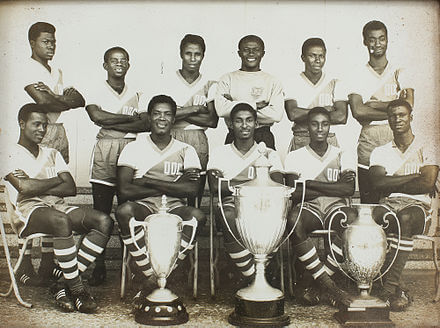
Credit: Wikiwand
The Black Stars have used various stadiums as their home for African Cup and World Cup qualifiers, stadiums like Essipong stadium, Sekondi-Tarkwa stadium, Len Clay Stadium, Kumasi, Accra, Tamale, and with the current one being the Cape Coast stadium.
The Black Stars since its establishment has had a number of coaches such as Charles Kumi Gymafi who was the most successful, winning two African Cups (1963, 1965) for the country. Fred Osam Duodu who won one African cup in the year 1978, Ratomir Dujkovic, Milovan Rajevac, James K. Appiah, Charles K. Akonnor, and the current one Milovan Rajevac.
On the 30th December 2005, an era started under the then GFA president Kwesi Nyantakyi who was instrumental in the team`s qualification to its first World Cup and also seeing the team to the 2010 World Cup quarter-final in South African. This era ended shortly after the 2018 World cup in Brazil with some issues surrounding his administration. He resigned on the 7th of June, 2018.
Present State of Ghana Black Stars
After the dissolution of the Kwesi Nyantakyi’s administration, the administration of Kurt Okraku which is dubbed “bring back the love” was started.
This administration has seen some good results with the team qualifying for the African Cup under the previous coach Charles K. Akonnor. The current coach, Milovan Rajevac was however appointed to take over from where he left.
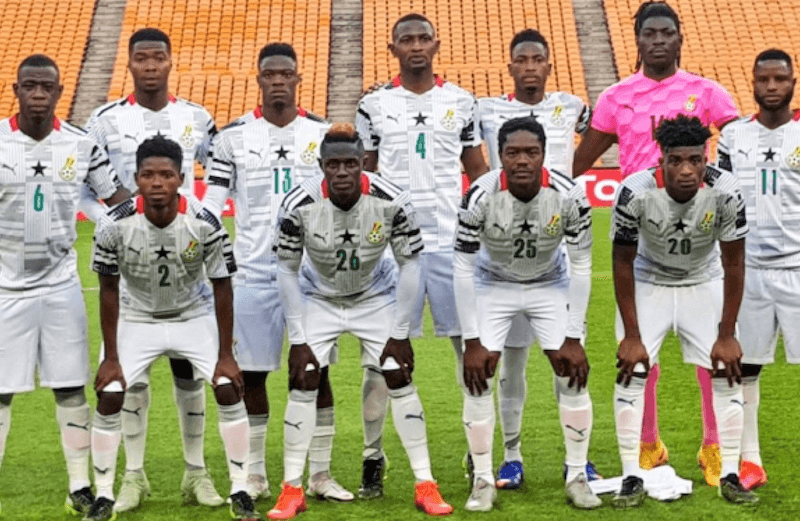
The Black Stars in recent times has seen some ups and downs with call ups and results not going well which led to the sacking of C.K. Akonnor. The new coach has the duty to qualify the team for its next World Cup with the two headline games against Zimbabwe at the Cape Coast Stadium and Harare.
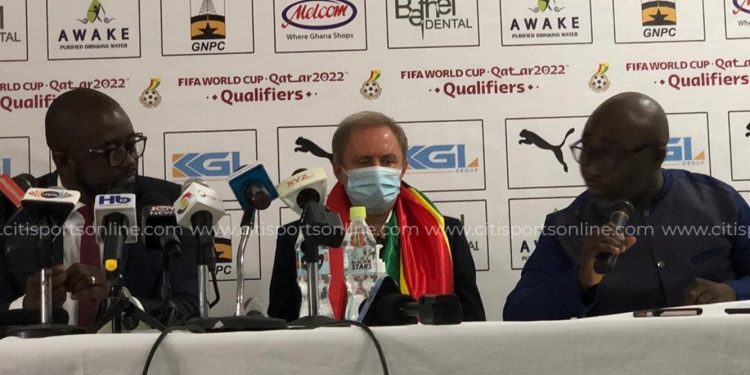
The team under the watch of this coach and with his two assistants Otto Addo and Maxwell Konadu hopes to qualify the team to the next world cup in Qatar in 2022. To achieve this, the coach has called up new faces to blend with the old, to hatch a team formidable enough to face Zimbabwe in the two header games.
Written by: James A. Doe, intern at TheAfricanDream.net / edited by Arakunrin Lekan
Christopher Sam is a savvy web designer and developer with advanced knowledge in Search Engine Optimization. The certified Google Trainer is also a trusty contributor to this website.

